For the past two seasons, the CT School Garden Resource Center has partnered with local schools across New Haven and Bridgeport to provide the comprehensive supports that theses schools need to develop rich school garden programs. The SGRC team helps to design and build gardens that are suitable to the needs and plans of the specific school community, and supports garden coordinators from within schools who will complete our School Garden Coordinator Training program, a year-long intensive program. The goal: School gardens that act as a powerful learning laboratory for students, deeply integrated into teaching and learning at their schools.
This spring, Common Ground welcomed six new partner schools on board! We asked these schools ‘why are school garden important?’ Here are some of their answers:
Donna Carleson, Clinton Avenue School and Community Garden:
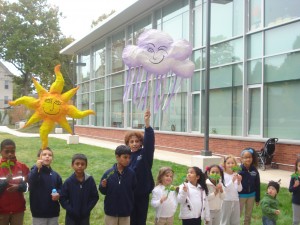 “Teaching sustainability is invaluable. Growing your own food, reducing waste, creating rich soil through composting, and studying and creating natural habitats are among the many important concepts students are learning as they work and play in the garden. Our students live in an urban area with little or no space to grow a traditional garden at home. Having a garden in our own school allows them to have this enriching, natural experience that they otherwise might not have. It also brings our community closer together.”
“Teaching sustainability is invaluable. Growing your own food, reducing waste, creating rich soil through composting, and studying and creating natural habitats are among the many important concepts students are learning as they work and play in the garden. Our students live in an urban area with little or no space to grow a traditional garden at home. Having a garden in our own school allows them to have this enriching, natural experience that they otherwise might not have. It also brings our community closer together.”
Amy Vazquez, Luis Munoz Marin School in Bridgeport:
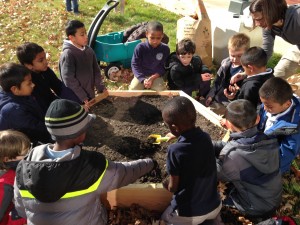 “When I first engaged Groundworks and the School Garden Resource Center, asked them about that undeveloped land, I envisioned students taking back territory in their own neighborhood, developing a sense of pride for their neighborhood, to help them understand their need to be responsible members of their community. I think the skills of gardening, the excitement of planting new things, experimenting with soils and becoming knowledgeable about plants, are passions that can develop in children if started at an early age.”
“When I first engaged Groundworks and the School Garden Resource Center, asked them about that undeveloped land, I envisioned students taking back territory in their own neighborhood, developing a sense of pride for their neighborhood, to help them understand their need to be responsible members of their community. I think the skills of gardening, the excitement of planting new things, experimenting with soils and becoming knowledgeable about plants, are passions that can develop in children if started at an early age.”
Mary Ann Moran, Clinton Avenue School and Community Garden:
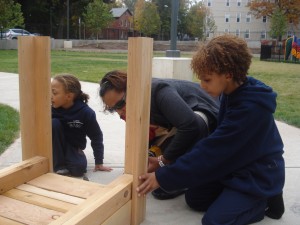 “The garden connects children to nature and gives them information on where healthy food comes from. It has created community in a neighborhood where healthy food sources are scarce. It enhances kids creativity and gives them power.”
“The garden connects children to nature and gives them information on where healthy food comes from. It has created community in a neighborhood where healthy food sources are scarce. It enhances kids creativity and gives them power.”
Erin Flood-Harrison, East Rock School:
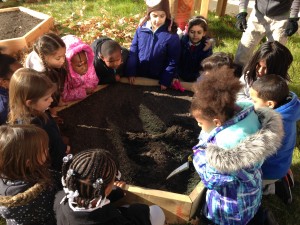 “The garden allows students to witness scientific topics that occur in everyday life. Gardens teach patience, care, long-term planning, and produce a product that can be eaten, admired and studied. They are a wonderful way to get students, staff, and community members thinking about healthy food, its origin, and the potential that we have to grow our own food. Gardens allow students and staff to spend more time outdoors getting fresh air and working in a cooperative and constructive manner on a long-term project.”
“The garden allows students to witness scientific topics that occur in everyday life. Gardens teach patience, care, long-term planning, and produce a product that can be eaten, admired and studied. They are a wonderful way to get students, staff, and community members thinking about healthy food, its origin, and the potential that we have to grow our own food. Gardens allow students and staff to spend more time outdoors getting fresh air and working in a cooperative and constructive manner on a long-term project.”
Judy Gross, James J. Curiale School:
“Fresh fruits and vegetables are expensive and for that reason don’t make up an large part of the diet of many of our students. Although our Nutrition Center now includes vegetable and fruit snacks in the daily menu, some children refuse to try them, and a large amount of food goes uneaten. When children can actually play a part in planting vegetables and watching them grow, I sense of ownership is developed. They are proud of what they have accomplished and are willing to try the fruits of their labor.”

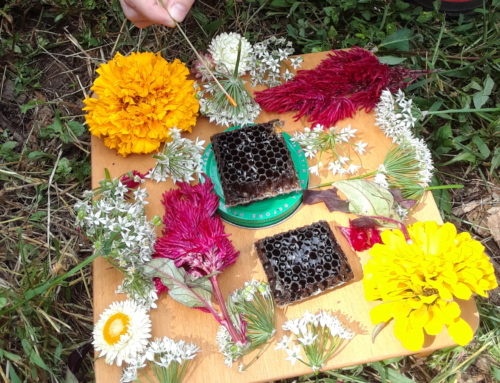
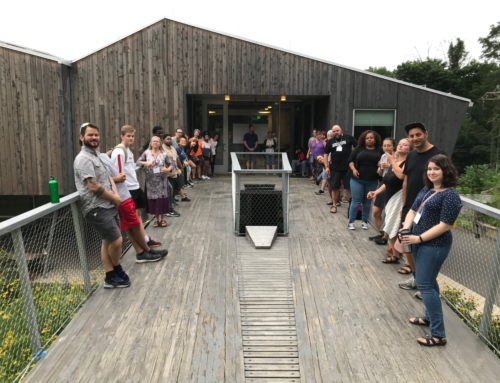
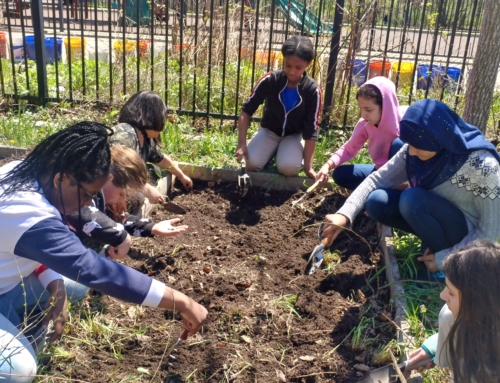
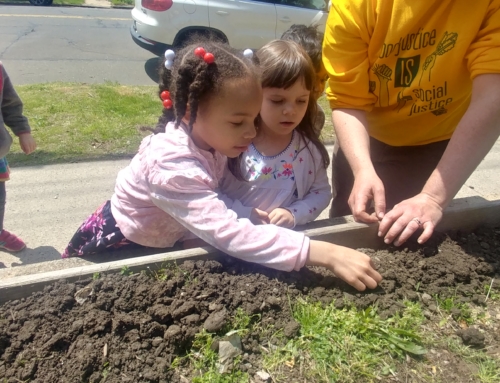
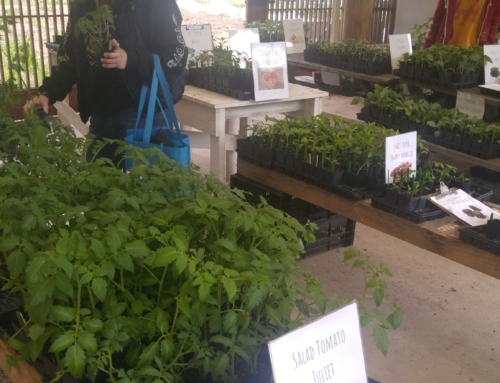
Leave A Comment